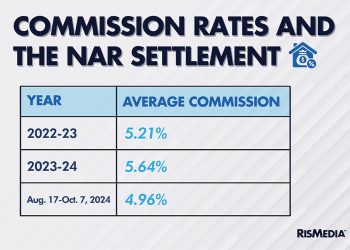One of the most urgent business problems a company can face is a lack of operational excellence.
BusinessDictionary.com defines operational excellence as “a philosophy of the workplace where problem-solving, teamwork, and leadership results in the ongoing improvement in an organization. The process involves focusing on the customers’ needs, keeping the employees positive and empowered, and continually improving the current activities in the workplace.”
We’ve all seen it. The team or agent that sells hundreds of houses, then fades into oblivion. We’ve seen the opposite, too, in the form of teams or agents that consistently do strong business year after year. What’s the difference between the two? It’s usually a result of having a strong foundation of systems that have been defined, implemented and tracked on a long-term basis that align with the company’s core values and mission, and deliver outstanding service to customers at all times. Operational excellence is not a destination, but rather an intentional journey, and a company must commit to it every day. Discipline must exist to achieve excellence.
In 1986, Motorola set out to develop a methodology to drive improvement in manufacturing and standardize measuring defects; that methodology is now pervasive in the business world, and rightfully so. A core component of that methodology is DMAIC. DMAIC stands for define, measure, analyze, improve and control. While it has validity in so many industries, and was developed for manufacturing, it has a fantastic application in real estate.
Define the customer and the core business process involved.
- Define who your customers are. Will you work a niche such as luxury homes, seniors or REO? Who’s in your top 50?
- Define the process to serve your customer and how that process can be improved by mapping the process flow, from lead to forever. There should be a well-defined process and flow to make sure they’re raving fans of your company at all times.
Measure the performance of the core business process involved.
- Develop a data collection plan for the process, and track lead sources, cost of lead and return on lead.
- Compare to customer survey results to determine shortfall. Create a culture where your goal is amazing customer service, then measure that.
Analyze the data collected and process map to determine root causes of failure and opportunities for improvement.
- Identify gaps between current performance and goal performance.
Improve the process by designing solutions to fix and prevent problems.
- Create innovative solutions using technology and discipline.
- Develop and deploy an implementation plan.
Control the improvements to keep the process on the new course.
- Prevent reverting back to the “old way.”
- Require the development, documentation and implementation of an ongoing monitoring plan. You must inspect what you expect (not micro-manage).
The commitment by every member of the organization to carry out each system and process the right way, every time, is a foundational piece of operational excellence. The whole company should share in the vision and be empowered to affect the part of the process they’re responsible for. “Accountability is love” has never rung truer than in the quest for operational excellence. You must allow people to do their job, and you must measure and inspect that result. (Parts excerpted from GE’s DMAIC Approach)
Sara Guldi of The Guldi Group is a 13-year veteran of real estate. She lives in Florida and has a team in Maryland that consistently exceeds $20 million in production annually. Guldi’s passion is coaching, and she loves helping others build amazing business and lives using the performance coaching systems developed by Workman Success Systems. Contact her at Sara@WorkmanSuccessSystems.com.
For more information, please visit www.workmansuccesssystems.com.
For the latest real estate news and trends, bookmark RISMedia.com.










